How MI5 and GCHQ are trying to subvert the Scottish independence movement
By Jason Michael McCann
Jason Michael McCann is a Scottish academic and pro-independence activist-journalist based in Dublin, Ireland. He is a columnist for iScot Magazine and publishes his own blog, Random Public Journal.
Scottish independence, as unionists in Scotland now readily admit, will embarrass England and diminish what is left of the United Kingdom on the international stage. But this is not news. On the eve of devolution – the opening of the Scottish Parliament in Edinburgh – the British government, aware of the cost of losing Scotland, unilaterally shifted the sea border between England and Scotland so as to secure for the UK a share of North Sea oil and gas in the event of Scotland’s secession from the union. Albeit a small nation on the Atlantic west of Europe, Scotland accounts for most of the United Kingdom’s rich sea resources; its fisheries and fossil fuels, its renewable energy sources, and has historically contributed to the London exchequer from its manufacturing and heavy industries. The loss of Scotland to the United Kingdom would significantly reduce Britain’s capabilities as member of the NATO alliance, as a global liberal-interventionalist state, and irreparably damage its current standing as an ‘economic powerhouse.’
It stands to reason then that the Westminster government has and has always had a vested interest in keeping Scotland tied to the United Kingdom. How far the British state is willing to go, however, to maintain the status quo remains a matter of considerable concern to Scottish independentistas. Less than a year after Scotland’s 2014 independence referendum the founder of WikiLeaks, Julian Assange, said, given ‘that Scottish independence is, in effect, a threat to the state,’ nationalists were not at all paranoid to suspect they had been subjected to the surveillance and manipulations of Britain’s secret services and security forces. Craig Murray, a former British diplomat turned independence supporter and a former rector of Dundee University, had much the same to say at the same time.
MI5 in Scotland
In fact, even before the referendum Jim Sillars, Deputy Leader of the Scottish National Party in the early 1990s, claimed to have been aware of the arrival into Glasgow of a number of secret service operatives. Of course, this is all a matter of speculation and anecdotal, but then Special Branch, GCHQ, and MI5 don’t exactly broadcast their activities and neither are they subject to Freedom of Information requests. So, the absence of evidence – especially in the case of state security services – does not amount to evidence of absence. Considering the geopolitical price the United Kingdom will pay for losing Scotland, we must maintain a healthy hermeneutic of suspicion with regard to the British state – its actions and its motives.
MI5, in the FAQ section of its website – under the heading ‘Does MI5 investigate trade unions and pressure groups?’ – defines subversion worthy of investigation as any activities ‘which threaten the safety or well-being of the state and which are intended to overthrow or undermine parliamentary democracy by political, industrial or violent means.’ Douglas Hurd, Home Secretary from 1985-89, stated ‘the sole criterion in relation to a subversive threat is whether there is a deliberate intention to undermine parliamentary democracy and whether that presents a real threat to the security of the nation’ – a criterion which became law in the 1989 Security Service Act.
Declassified files reveal that in the past MI5 surveilled and infiltrated trade unions, the Communist Party of Great Britain, and a number of near insignificant Trotskyist organisations during the 1978-79 strike-bound ‘Winter of Discontent.’ Under Margaret Thatcher, during the longest miners’ strike in British history (1984-85), ‘The Service’ was again called upon to report on the subversive activities of workers and trade unions. More recently, MI5, Special Branch, and much of the rest of the British state security apparatus have been active in the infiltration of environmentalist and animal rights groups – this time with the assistance of anti-terror legislation. To imagine the Scottish National Party and the Scottish independence movement, which by their stated objective ‘threaten the safety or well-being of the [British] state’ by ‘political means,’ are not subject to close surveillance and infiltration by the state’s security services is a serious mistake that flies in the face of what we know of Britain’s consistent paranoid behaviour.
It is the case that if the security services were not surveilling, infiltrating, and subverting the independence movement in Scotland and if we had concrete and irrefutable evidence of their activities, they would not be doing their job right. But this does not mean there is no evidence of the security services disrupting the independence movement and engaging in military-style human terrain tactics developed by UK and US clandestine services in Iraq and Afghanistan. We do.
GCHQ on the offensive
In late 2018 the online ‘hacktivist’ group Anonymous breached GCHQ’s digital security and leaked two batches of documents pertaining to the shady ‘Integrity Initiative’ (a project of the London government-funded, Fife-based, and curiously named Institute for Statecraft), exposing it as a nefarious ‘nudging’ operation. These leaks laid bare – or purported to lay bare – a massive domestic smear campaign against Jeremy Corbyn, the leader of the Opposition in the House of Commons, and the British state’s concerns over disadvantageous political developments in Scotland and the north of Ireland. One document questioned ‘Will the current relationship survive, or will we have a federal relationship, or will some become independent?’
What was most interesting was the suggestion of a nexus of communication linking the British government’s surveillance hub – GCHQ, the Integrity Initiative, and journalists and broadcasters working for unionist media outlets in Scotland. Together with concern in the documents for the negative perception of the BBC among ordinary Scots, there were memos of meetings between journalists and unnamed Integrity Initiative staff. One of these contained a summary of a meeting with The Herald’s David Leask – the man who mediated Julian Assange’s warning about MI5 interference in Scotland through a distinctly conspiratorial lens in 2015 – in which he was panicked over the prospect of some ‘nutcase in a kilt’ attending a separatist conference in Russia.
Anthony McIntyre, a former Irish Republican prisoner in the Long Kesh concentration camp, says this is entirely in keeping with Britain’s behaviour during the Troubles. Besides describing the Intelligence Service’s ‘Bell Pottinger playbook’ – flooding social media with sock puppet accounts in order to spread disinformation and derail or misdirect discussion, he described how in Ireland MI5 – ‘the Spooks’ – recruited journalists and other public figures as assets and agents of influence through whom the deep state would routinely attack and smear opponents, plant stories, and construct a narrative of the situation beneficial to the British government. It is certainly clear to Scottish social media users that during times of heightened political activity an entire army of pro-union accounts using false identities springs to life from complete dormancy. These accounts are not the work of private individuals, and they are doing a terrible job if they are working for Russia.
The road to physical repression
There can be little doubt, from the suspicious death of Willie MacRae – lawyer, SNP activist, and anti-nuclear campaigner – in 1985 to the unsettling relationship between the security services and unionist journalists today, that the British state is securitising Scotland’s independence movement. Naturally, there will always be a level of paranoia among those who assume they are being surveilled, but common sense and everything that is known of the past activities of GCHQ, MI5, and similar state security services tells us we are wise to be alert. When anti-terror legislation is being used to detain and search pro-independence activists, giving the police and other agencies unfettered access to their email and social media accounts, it is safe to assume an advanced state of political policing and state security interest.
The fear, considering Britain’s track record in Ireland, is that such shadowy influence and interference – profoundly undemocratic as it is – will be used to further polarise the country and to instigate violence. Again, this is not a baseless concern. In May 2016, David Torrance wrote an article for The Herald – the same paper to which David Leask is attached – titled: ‘The Ulsterisation of Scottish politics is complete.’ The idea and the implied threat have been circulated. It matches the pattern described by McIntyre and corroborated by others familiar with these tactics. We can only hope Scotland avoids the violence visited by Britain on Ireland, but there is no mistaking the tell-tale signs that the British state has already laid the groundwork for an escalation to physical repression. It would be completely out of character for Britain to fail to do this, and it always begins with the deployment of security in the name of state protection. And it is always this development which paves the way for the Bloody Sundays and Orgreaves of British rule.
Israeli settlers set mosque ablaze in West Bank during Ramadan
Nouri al-Maliki vows not to withdraw bid for Iraq’s premiership
OIC calls emergency summit as Israel accelerates West Bank expansion
Israel, not America, first: Carlson’s Huckabee interview lays bare US foreign policy priorities
VIDEO | Call for unity, more support for Palestine, humanitarian action during Ramadan
Lebanese parliament speaker rejects any postponement of elections
VIDEO | Gazans break Ramadan fast amid rubble of their destroyed homes
Iran seeks to strengthen strategic ties with West African countries: Defense minister


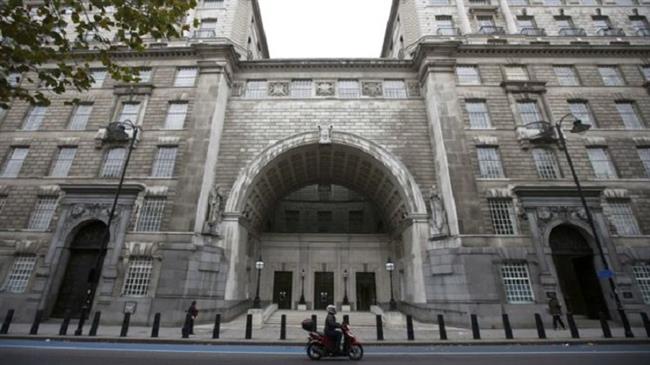
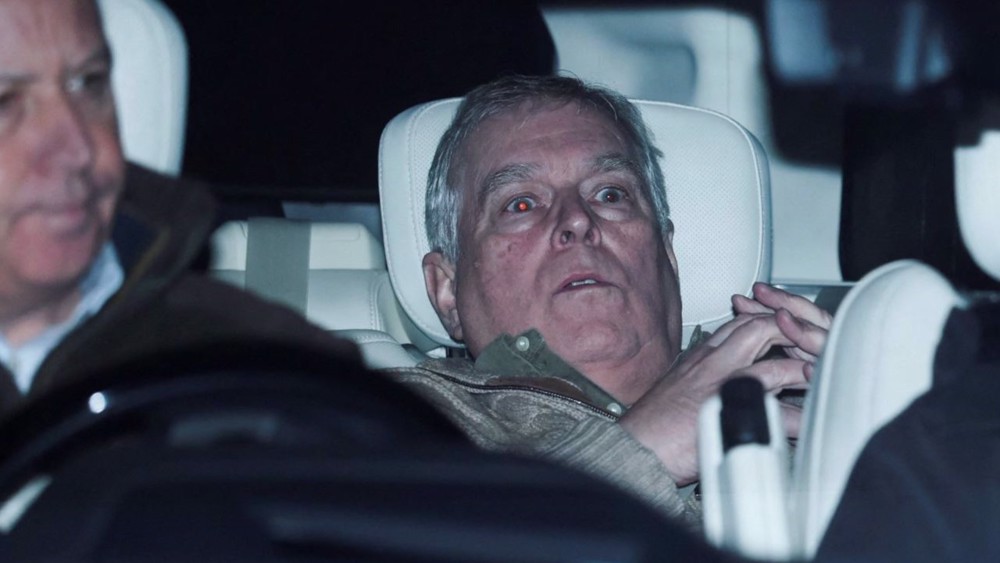
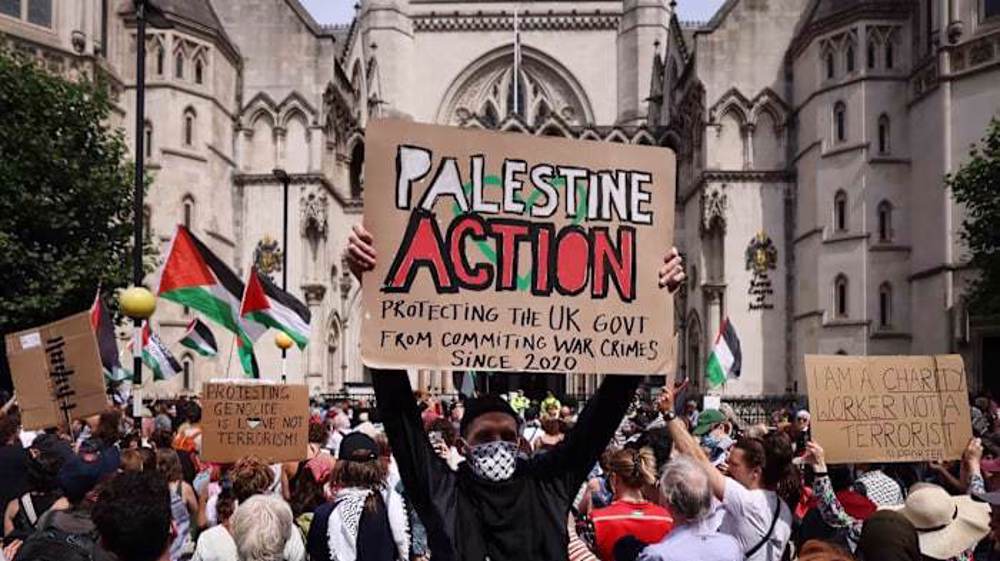
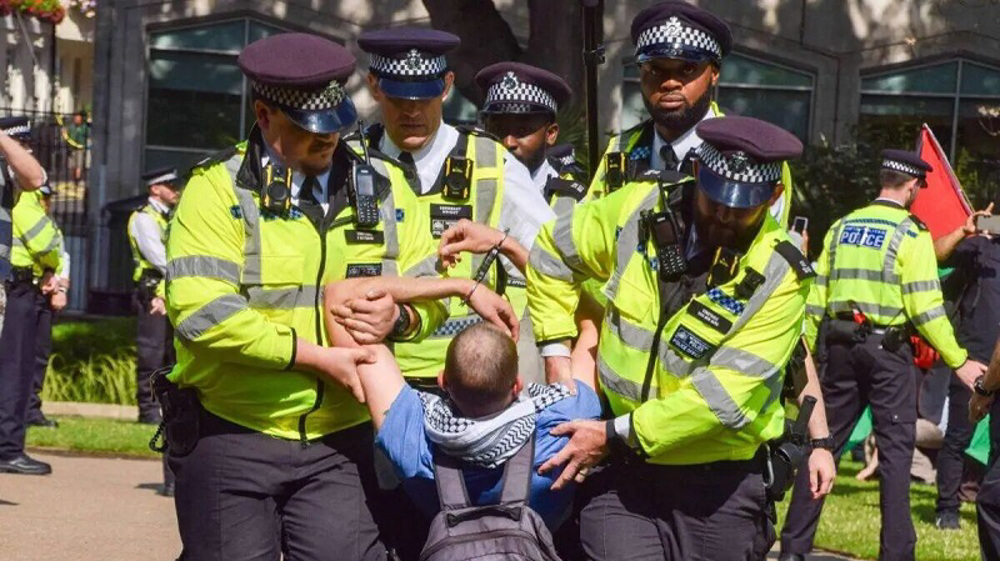



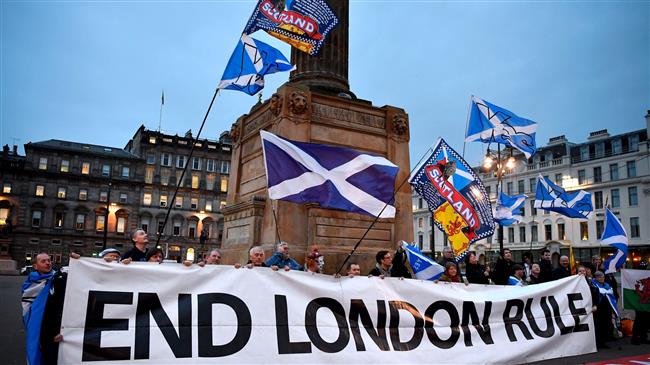
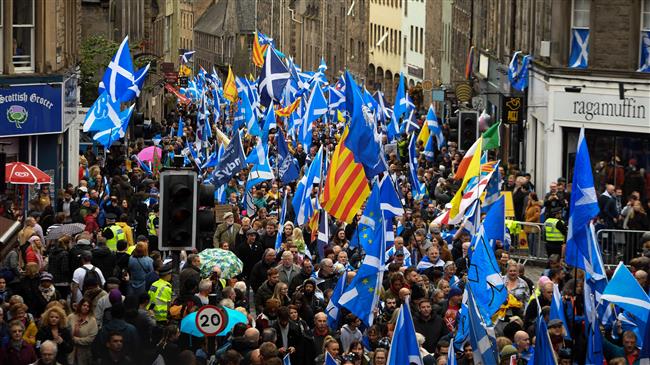
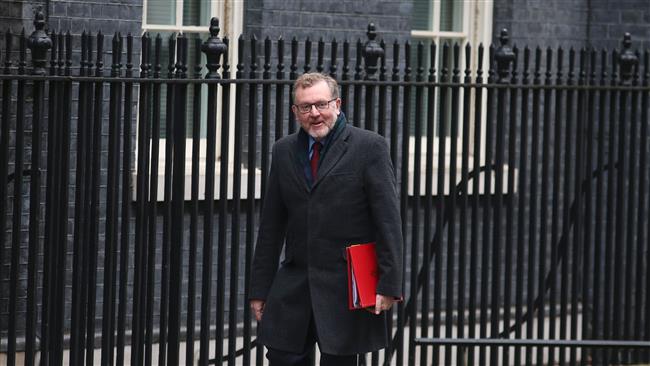
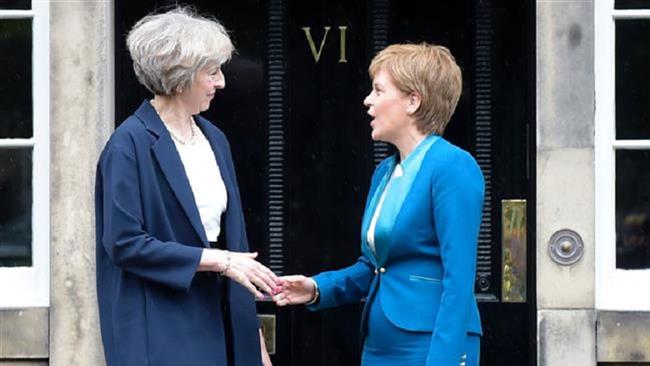
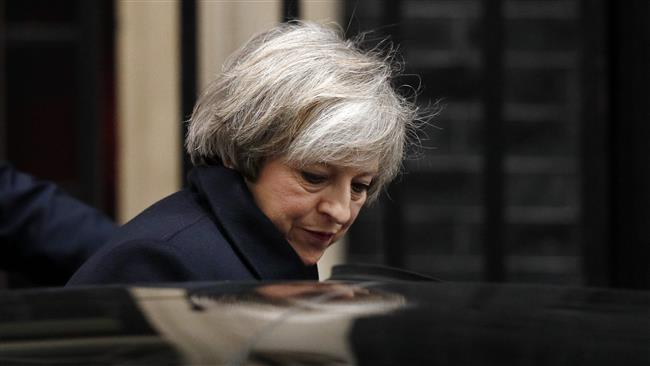

 This makes it easy to access the Press TV website
This makes it easy to access the Press TV website